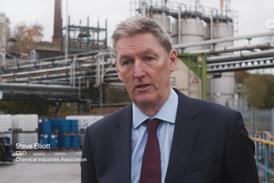UK chemical sites compete in a global market, whilst facing comparatively higher energy and climate related policy cost. The UK’s chemical assets have dwindled over the last decade, most notably we have lost many of the facilities producing major chemical building blocks and polymers.[1]
Several factors have driven this decline. Global competition has intensified, with regions like the Middle East and Asia benefiting from cheaper feedstocks and larger-scale operations. Whilst at the same time, high energy costs and stringent environmental regulations have increased operational expenses for UK plants. The closures have reduced self-sufficiency and increased our reliance on imports, affecting downstream manufacturing sectors.
The UK Government is assessing whether to link the UK and EU Emissions Trading Schemes, which could provide a more economically efficient route to net zero and secure a mutual exemption from the respective EU and UK Carbon Border Adjustment Mechanisms (CBAMs) for goods travelling across borders. In principle, we agree that a link between carbon markets could address many of the issues we face in respect of trade and a level playing field. However, we would ask the Government to carefully consider the below as it explores the options for linking.
First, the Government should consider the length of time required for such a negotiation, as well as the impact ongoing negotiations might have on price volatility in the much smaller UK carbon market. Chemical manufacturing sites in the UK are competing with sites around the world to attract investment in net zero technologies, and key to unlocking that capital will be the certainty that comes with policy clarity and stability.
Second, the linking announcement stated that there was an intention for the UK to pursue dynamic alignment with the EU. This must be negotiated on a case-by-case basis. Taking all EU rules wholesale could lead to serious unintended consequences for UK industry. Noting the pre-requisite for dynamic alignment with the EU, the proposed role of the UK in shaping the Commission’s policy making, and the role of the European Court of Justice in arbitration, we ask that the Government consult fully with UK ETS participants before concluding negotiations to ensure that the end result is something that works for British industry.
Third, there are a large number of outstanding consultations on the design of the UK carbon market. Industry needs certainty to invest and it is problematic if decisions on the workings of the scheme are to be delayed whilst a link is negotiated. Even with the publication of outstanding consultation responses, it is now unclear whether their conclusions will be implemented. For example, will free allowance allocations under the UK scheme be changed according to current consultation proposals, or will we need to follow the EU’s rules?
As an export dominated sector – worth £61bn to the UK economy last year – we need effective and sustained carbon leakage mitigation for all of our production following the introduction of the UK CBAM and our new free allocation regime in 2027. Without this, we risk loss of competitiveness, jobs, manufacturing capability and revenue for UK plc. Whatever deal is or is not reached, the UK Government must ensure the overall design of the UK ETS, alongside its other decarbonisation policy, is adequate and aligned to deliver decarbonisation not deindustrialisation.
[1] The chemical industry transition: Pathways for a resilient and sustainable future | News | Chemical Industries Association






















